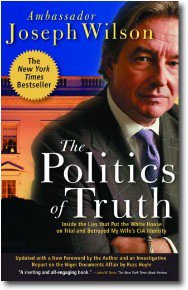The McGuinty government was embarrassed yesterday when the opposition Tories revealed the
expense details of then-energy minister Dwight Duncan’s trip to Brussels last September. Duncan and four aides travelled business-class, had a $789.15 lunch that included six $70 steaks, a ministerial aide expensed candy, a soft drink, a magazine and a bag of almonds (each costing less than $10) – you get the picture.
In question period, Dalton McGuinty defended the expenses on the grounds that they had all been reviewed and approved by the province’s integrity commissioner. Though not in attendance at question period, Dwight Duncan (now finance minister) appeared for a scrum later in the afternoon, explaining that (1) “It’s expensive to host those kind of meals . . . but given the number of people, I wouldn’t say it was out of line” and (2) the pop and candy weren’t for him: “It was neither myself nor a member of my political staff that expensed it, nor did we authorize it, nor was I aware of it.”
The Tories’ news release entitled “$60 for Rebates, $70 for Energy Minister’s Steak” ended with this kick in the goolies for Duncan:
“Yesterday we learned that Tory ministers and their assistants will go to the ends of the earth and back, as long as they can charge the taxpayers for it...While families were opening skyrocketing hydro bills, [they were] eating expensive steaks and making us pay for it. [Ontarians] want a government that will work for them and give them open and accountable government with real integrity. They want the leadership that Dalton McGuinty and the Ontario Liberal Party can provide.”
--Dwight Duncan, Ontario Hansard, October 10, 2002
All the high-carb, high-fat details appeared today in Toronto papers the
Sun,
Globe and Mail and
National Post, but
not a word of it made The Toronto Star. Contrast this with the
Star’s treatment of the expense scandals of Ernie Eves’ cabinet ministers Cam Jackson and Chris Stockwell, and the expenses of the Harris ministry:
Tory minister repays $7,600 for hotels, food ; Jackson told by Premier’s office to review expenses; [Ontario Edition]
Richard Brennan. Toronto Star. Toronto, Ont.: Oct 2, 2002. p. A.07
Minister quits over expenses ; Jackson attacked by Liberals over $103,722 tab; [Ontario Edition]
Richard Brennan. Toronto Star. Toronto, Ont.: Oct 3, 2002. p. A.07
Eves to review tourism minister’s tab ; Jackson called ‘gluttonous’ by Liberal MPP; [Ontario Edition]
Richard Brennan. Toronto Star. Toronto, Ont.: Oct 3, 2002. p. A.07
Inappropriate expenses must be repaid: Premier ; Jackson’s spending as tourism minister to be scrutinized; [Ontario Edition]
Richard Brennan and Caroline Mallan. Toronto Star. Toronto, Ont.: Oct 4, 2002. p. A.06
Expense accounts detail a life of luxury ; Jackson patronized pricey steakhouses, lavish four-star hotels on taxpayer dollars; [Ontario Edition]
Betsy Powell. Toronto Star. Toronto, Ont.: Oct 4, 2002. p. A.07
Eves’ expense receipts withheld by ministry ; Liberals furious at ‘cover up’ as big-spending minister fired; [Ontario Edition]
Richard Brennan. Toronto Star. Toronto, Ont.: Oct 4, 2002. p. A.01
Former Eves staff pay back expenses ; It’s an ‘admission of guilt,’ says Liberal MPP; [Ontario Edition]
Richard Brennan and Caroline Mallan. Toronto Star. Toronto, Ont.: Oct 5, 2002. p. A.01
Liberals grill Eves over his spending; [Ontario Edition]
Richard Brennan and Caroline Mallan. Toronto Star. Toronto, Ont.: Oct 8, 2002. p. A.01
Eves says public should get yearly look at expenses; [Ontario Edition]
Richard Brennan. Toronto Star. Toronto, Ont.: Oct 9, 2002. p. A.19
Tory ministers and assistants spent $2 million over six years ; Mike Harris billed $70,876 in personal expenses: Papers; [Ontario Edition]
Richard Brennan. Toronto Star. Toronto, Ont.: Oct 10, 2002. p. A.27
Defiant MPP insists he did nothing wrong ; Cam Jackson says he was fully open about details of expenses; [Ontario Edition]
Richard Brennan. Toronto Star. Toronto, Ont.: Oct 16, 2002. p. A.07
Around this point the Tories finally dug up some dirt on one of the Liberals’ lead attack dogs, Windsor MPP Sandra Pupatello, but when a Tory MPP incorrectly alleged that Pupatello had overspent her global budget every year, the Star did a story slapping the Tories’ wrists and helping Pupatello portray herself as a victim of “intimidation”:Critic of Tory expenses used government courier for friend ; Liberal MPP defends shipping boxes to England; [Ontario Edition]
Theresa Boyle. Toronto Star. Toronto, Ont.: Oct 10, 2002. p. A.01
Liberal claims ‘intimidation’ ; Tories admit ‘inaccurate’ charges levelled; [Ontario Edition]
Theresa Boyle. Toronto Star. Toronto, Ont.: Oct 11, 2002. p. A.07
Because of all the noise, the Tories decided in December 2002 to “strategically” release all ministers’ and staff expenses going back to their taking office in 1995. (Full disclosure: as a political staffer for transportation minister Al Palladini from 1995-1997, I was taken out by my boss with other political staff to several lunches and dinners.) Eves then announced that all the inappropriate expenses from previous years would be repaid , and that there would be new standards for expenses (e.g. no booze on the taxpayer’s dime).From candy bars to fancy dinners: Tories lift lid on 7 years of expenses ; Reports fill more than 12,000 pages Liberals blast mass release of papers; [Ontario Edition]
Richard Brennan, Theresa Boyle and Caroline Mallan. Toronto Star. Toronto, Ont.: Dec 4, 2002. p. A.06
Smarties, cocktails expensed by Tories ; 12,000 pages of documents yield unusual receipts Seven years of spending from ministers and staff; [Ontario Edition]
Richard Brennan and Theresa Boyle. Toronto Star. Toronto, Ont.: Dec 5, 2002. p. A.04
Queen’s Park staff ate out often: Papers ; Itemized receipts include meals, gifts Tory spending chronicled in reports; [Ontario Edition]
Richard Brennan. Toronto Star. Toronto, Ont.: Dec 7, 2002. p. A.14
Maps, short cab rides top ministry expenses ; Flaherty, staff billed taxpayer New documents outline costs; [Ontario Edition]
Richard Brennan. Toronto Star. Toronto, Ont.: Dec 8, 2002. p. A.16
Political payback hits $55,000 ; MPPs, cabinet ministers reimburse taxpayers for expenses New rules clamp down on bills for booze, trips, meals, gifts; [Ontario Edition]
Richard Brennan. Toronto Star. Toronto, Ont.: Feb 1, 2003. p. A.04
Then in the late spring of 2003 there was an eruption over energy minister Chris Stockwell’s visit to Europe in which he combined government business with a family vacation. (Maybe energy ministers should be barred from going to Europe).
The focus of the opposition’s ire was that part of the trip was expensed through Ontario Power Generation and not the energy ministry. The furor intensified when Stockwell revealed that his riding association subsidized $25,000 of the cost of the trip, to allow Stockwell’s family to accompany him.Stockwell: ‘I’m not quitting’ ; Defends expenses from European trip Says opposition at ‘reptilian’ levels; [Ontario Edition]
Richard Brennan. Toronto Star. Toronto, Ont.: Jun 6, 2003. p. A.03
Stockwell’s fate in official hands ; Integrity watchdog analyzing spending ‘We ... go by whatever he rules,’ says Eves; [Ontario Edition]
Caroline Mallan and Robert Benzie. Toronto Star. Toronto, Ont.: Jun 14, 2003. p. A.30
Stockwell quits cabinet ; Steps down pending integrity commissioner’s report Eves did not ask for minister’s resignation, Tories say; [Ontario Edition]
Robert Benzie. Toronto Star. Toronto, Ont.: Jun 17, 2003. p. A.01
Later that summer, the integrity commissioner cleared Cam Jackson’s expenses that had prompted his resignation the previous year.Jackson’s expenses deemed reasonable; Integrity czar ‘satisfied’ by MPP’s claims Clears way for Eves to reinstate former minister; [ONT Edition]
Robert Benzie. Toronto Star. Toronto, Ont.: Aug 30, 2003. p. A.04
There was no time to reinstate Jackson, however, as the election was called a few days later.


